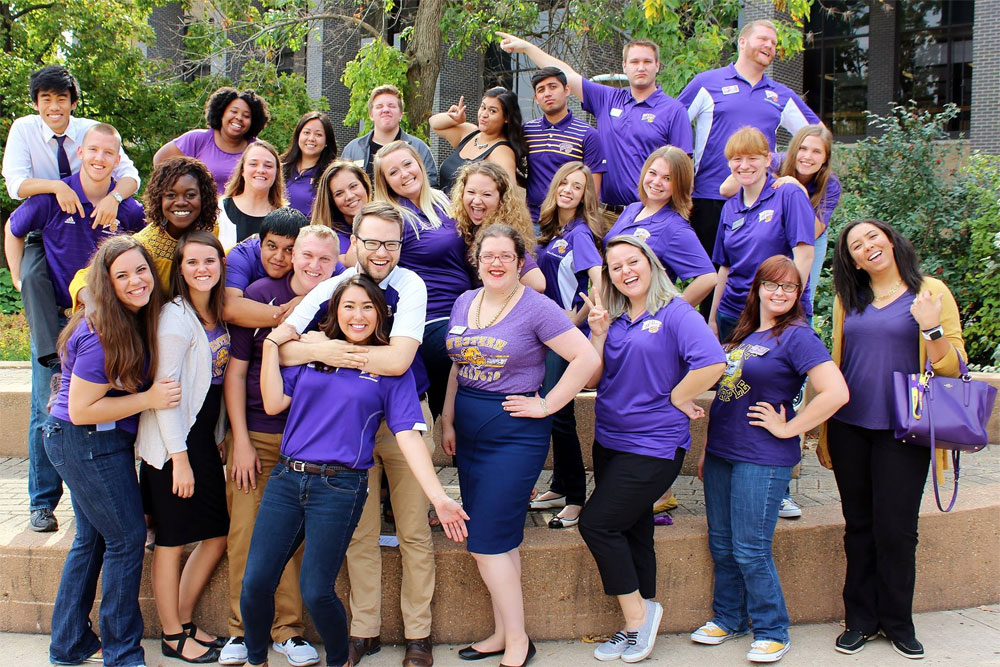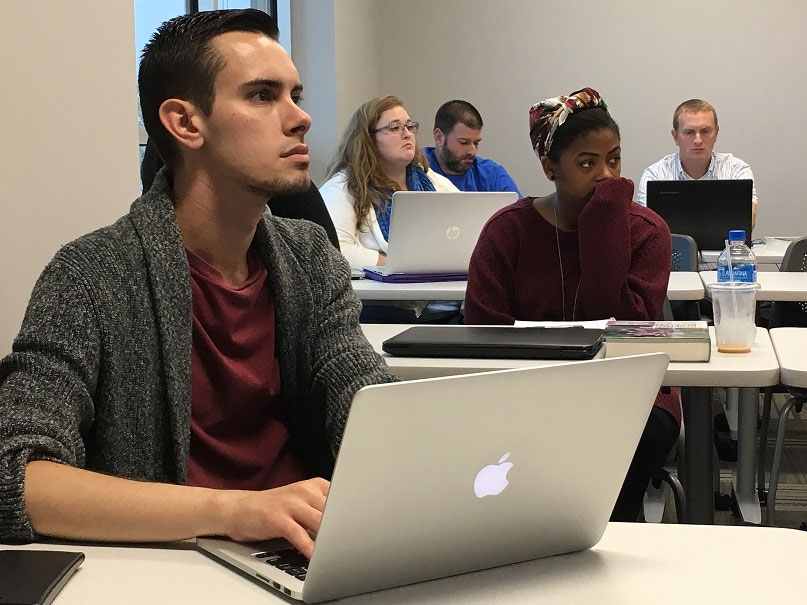College of Education & Human Services
College Student Personnel Program Overview
The College Student Personnel (CSP) Program offers a full-time track for emerging professionals who want to gain hands-on field experience ( CSP: Student Affairs track) and a part-time track for professionals who are currently engaged in student affairs work ( CSP: Higher Education Leadership ). With these audiences in mind, the CSP Program is committed to its long-standing tradition of theory-to-practice with coursework focused on student development theory, leadership development, group dynamics, philosophy and history of higher education, organization and administration of student affairs, multicultural competency, counseling theory and techniques, and research methods.
We achieve theory-to-practice through student, faculty, and student affairs partnerships as well as practical experiences in the field of student affairs and classroom settings. Our Program is designed to help students develop as effective and reflective leaders who approach student affairs work as socially and ethically responsible practitioners in a variety of settings, including residence life, student activities, fraternity/sorority life, admissions and student recruitment, academic advising, orientation, student union management, multicultural student programs, student retention, gender programs, career development, experiential education, and college administration.

Pedagogical Framework
The pedagogical framework of the College Student Personnel program utilizes transformative learning, group dynamics, psycho-social and leadership development, and reflexive praxis.
Student Learning Outcomes
Students who graduate from the College Student Personnel program (Student Affairs and Higher Education Leadership tracks) at Western Illinois University will be able to:
- Identify approaches to address contemporary issues facing higher education;
- Articulate histories, values, and philosophies of higher education;
- Study leadership (as a role and process) to create learning environments (virtual or in-person) that support the inclusion of all students and members of campus communities while attending to issues of privilege, power, and oppression.
- Define and assess organizational and human resources including, but not limited to: policies, practices, procedures, and structures;
- Gather, apply, and deploy methods of research and assessment to improve, shape, and benefit student learning and higher education; and
- Describe the concepts and principles of student development and learning theories that advance intrapersonal, interpersonal, and cognitive complexity;


Connect with us: